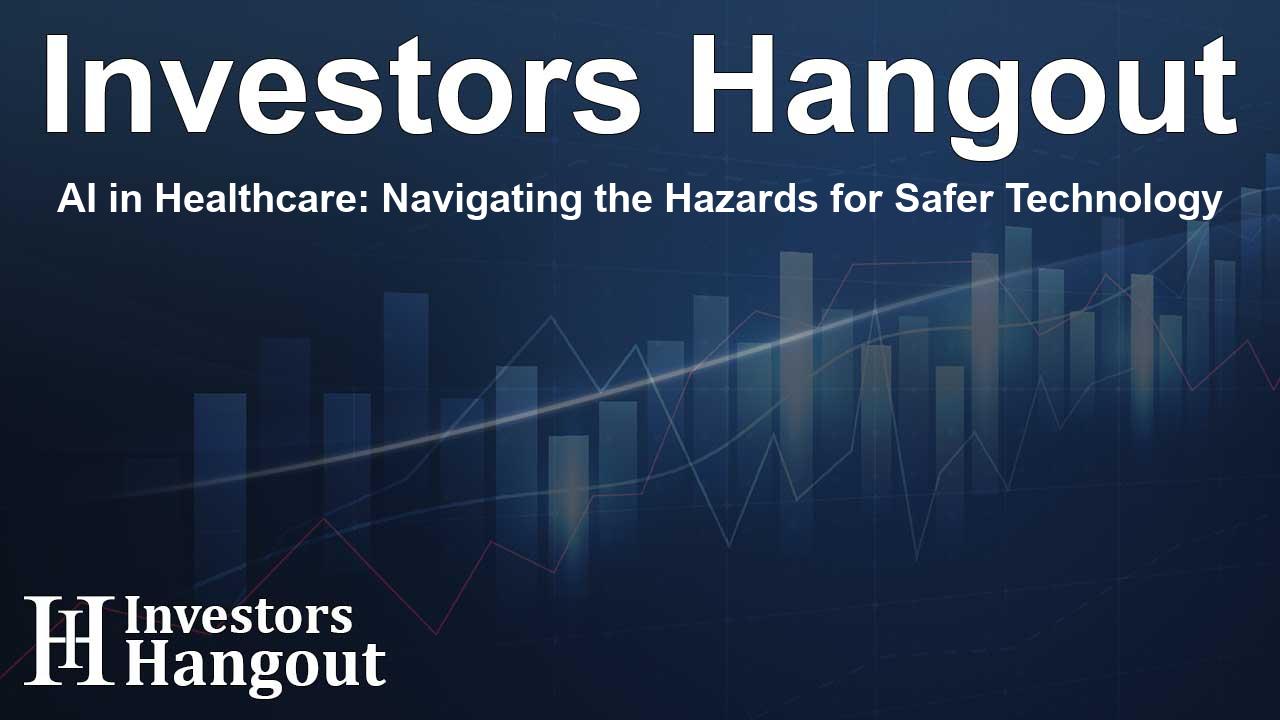AI in Healthcare: Navigating the Hazards for Safer Technology

AI's Role in Modern Healthcare Hazards
Artificial intelligence (AI) is making waves in the healthcare sector, revolutionizing everything from patient diagnostics to treatment recommendations. However, as highlighted in ECRI's 2025 report, this technology is not without its significant challenges. With its immense potential to enhance healthcare practices, the necessity for rigorous evaluation and management of associated risks becomes paramount.
Key Concerns in Health Technology
ECRI has identified various pressing issues that impact the safety and efficacy of healthcare technology. Among these concerns is the increasing reliance on AI in clinical applications. While AI can aid in precise diagnostics leading to better patient outcomes, the concern lies in the system's decision-making transparency and accountability. Poorly designed algorithms or inadequate training data can lead to erroneous conclusions that ultimately jeopardize patient safety.
Cybersecurity Vulnerabilities
In addition to AI risks, cybersecurity vulnerabilities pose a serious threat. Healthcare applications are prime targets for cyberattacks, where patient data can be jeopardized. Compromised security systems can lead to unauthorized access to sensitive information, potentially harming patients and eroding trust in healthcare institutions. Proactive measures, such as regular software updates and stringent access controls, are essential to safeguard patient information.
The Dangers of Counterfeit Medical Products
Another glaring risk highlighted in the report is the presence of counterfeit medical products. Counterfeit devices can infiltrate the market, leading to ineffective treatments and potential harm to patients. Ensuring the integrity of the medical supply chain is critical. Stakeholders must implement thorough verification processes and invest in technologies like blockchain to enhance traceability and detection of counterfeit items.
Regulatory Oversight and Innovation
To mitigate these risks, regulatory bodies need to enhance their oversight of AI and other medical technologies. Adopting a collaborative approach involving AI developers, healthcare providers, and regulators is crucial. This collaboration can lead to the establishment of comprehensive guidelines and best practices for the safe deployment of AI in healthcare settings.
Creating Awareness Among Healthcare Professionals
Awareness and education are vital components for safeguarding patient health in the age of AI. Healthcare professionals must be trained to understand the limitations and risks associated with AI technologies. Continuous education programs should be developed to keep medical staff informed about the latest advancements and the potential hazards linked to their usage.
Conclusion: A Path Forward
As AI continues to transform healthcare, it is essential to recognize the accompanying risks outlined in ECRI's report. By taking proactive steps—such as improving cybersecurity, safeguarding against counterfeit products, and enhancing regulatory oversight—the healthcare industry can leverage AI effectively while minimizing hazards. The path forward must be paved with a commitment to patient safety and innovation.
Frequently Asked Questions
What is ECRI's report about?
ECRI's report details significant health technology hazards, emphasizing the risks associated with AI, cybersecurity vulnerabilities, and counterfeit medical products in healthcare.
Why is AI considered a health technology hazard?
AI can potentially enhance healthcare outcomes, but without proper evaluation and management, it poses risks such as decision-making transparency issues and accountability concerns.
What are the cybersecurity threats in healthcare?
Cybersecurity vulnerabilities can lead to unauthorized access to sensitive patient data, compromising privacy and trust in healthcare services.
How do counterfeit medical products affect patients?
Counterfeit medical products can result in ineffective treatments and pose direct health risks to patients, making verification and traceability crucial in the medical supply chain.
What steps can healthcare providers take to mitigate risks?
Healthcare providers can enhance security measures, educate staff about AI limitations, implement verification processes for medical products, and collaborate with regulatory bodies for guidelines to ensure safer technology use.
About Investors Hangout
Investors Hangout is a leading online stock forum for financial discussion and learning, offering a wide range of free tools and resources. It draws in traders of all levels, who exchange market knowledge, investigate trading tactics, and keep an eye on industry developments in real time. Featuring financial articles, stock message boards, quotes, charts, company profiles, and live news updates. Through cooperative learning and a wealth of informational resources, it helps users from novices creating their first portfolios to experts honing their techniques. Join Investors Hangout today: https://investorshangout.com/
Disclaimer: The content of this article is solely for general informational purposes only; it does not represent legal, financial, or investment advice. Investors Hangout does not offer financial advice; the author is not a licensed financial advisor. Consult a qualified advisor before making any financial or investment decisions based on this article. The author's interpretation of publicly available data shapes the opinions presented here; as a result, they should not be taken as advice to purchase, sell, or hold any securities mentioned or any other investments. The author does not guarantee the accuracy, completeness, or timeliness of any material, providing it "as is." Information and market conditions may change; past performance is not indicative of future outcomes. If any of the material offered here is inaccurate, please contact us for corrections.